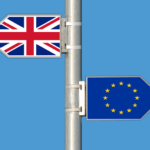The presidency of the Council and European Parliament negotiators reached a provisional political agreement on the draft directive on adequate minimum wages in the EU. The new law – once finally adopted – will promote the adequacy of statutory minimum wages and thus help to achieve decent working and living conditions for European employees.
The directive establishes procedures for the adequacy of statutory minimum wages, promotes collective bargaining on wage setting and enhances the effective access to minimum wage protection for those workers who are entitled to a minimum wage under national law, e.g. by a statutory minimum wage or collective agreements.
Adequacy of statutory minimum wages
Member states with statutory minimum wages are requested to put in place a procedural framework to set and update these minimum wages according to a set of clear criteria. The Council and the European Parliament agreed that updates to the statutory minimum wages will take place at least every two years (or at most every four years for those countries that use an automatic indexation mechanism). The social partners will have to be involved in the procedures for setting and updating statutory minimum wages.
Promotion of collective bargaining on wage setting
As collective bargaining on wage setting is an important tool to ensure that workers can benefit from adequate minimum wages, the directive aims to extend the coverage of workers through collective bargaining. That is why the co-legislators agreed that countries should promote strengthening the capacity of social partners to engage in collective bargaining, including the protection of workers’ representatives.
The provisional agreement between the Council and the European Parliament in particular foresees that where the collective bargaining coverage rate is less than a threshold of 80% member states should establish an action plan to promote collective bargaining. The action plan should set out a clear timeline and concrete measures to progressively increase the rate of collective bargaining coverage.
Effective access
Council and European Parliament also agreed on a number of measures to enhance the effective access of workers to minimum wage protection. These measures include controls by labour inspectorates, easily accessible information on minimum wage protection and developing the capability of enforcement authorities to go after non-compliant employers.
Background and next steps
The European Commission proposal was put forward to the two co-legislators – the Council of the EU and the European Parliament – on 28 October 2020. The Council agreed its position on 6 December 2021; the Parliament adopted its negotiating mandate on 25 November 2021.
Since early January, eight negotiating rounds between the Council and the European Parliament took place.
On the Council side, the agreement reached today will have to be confirmed by Coreper. This endorsement will be followed by a formal vote in both the Council and the European Parliament.
Member states have two years to transpose the directive into national law.

Commission approves 10 billion aid scheme for Spain |







Leave a Reply